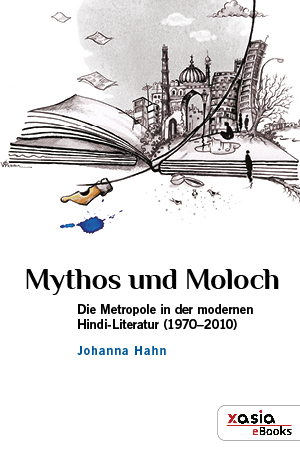
How to Cite
License

This work is licensed under a Creative Commons Attribution-ShareAlike 4.0 International License.
Identifiers
Published
Mythos und Moloch
Die Metropole in der modernen Hindi-Literatur (ca.1970-2010)
This work examines Hindi-language urban literature in the period between 1970 and the present. Using popular myths such as the "elusive city" (māyāvī śahar), characters such as the flâneur and places such as the tea stall, it shows how regional language narratives form an interface between global and national discourses and local worlds of experience. Hindi urban literature opens up a critical discursive space for social self-questioning in modern India. On the one hand, it stabilises notions of identity; on the other, it offers space for alternative imaginings of authentic coexistence in Delhi, Mumbai, Kolkata, and other major north Indian cities. Surprisingly, both conservative and (neo)Marxist alternatives are oriented towards the same idea of the idealised Indian nation. Especially utopian narratives and works dealing with citizenship bridge the gap between the national unity ideal of the founding years of the Indian republic and the postcolonial critique of the 1980s and 1990s with the question of the "own". Urban literature in Hindi thus enriches intellectual and political debates through regional language readings of the past and present.
Book Reviews
Justyna Kurowska in IQAS Autumn/Winter 2021








